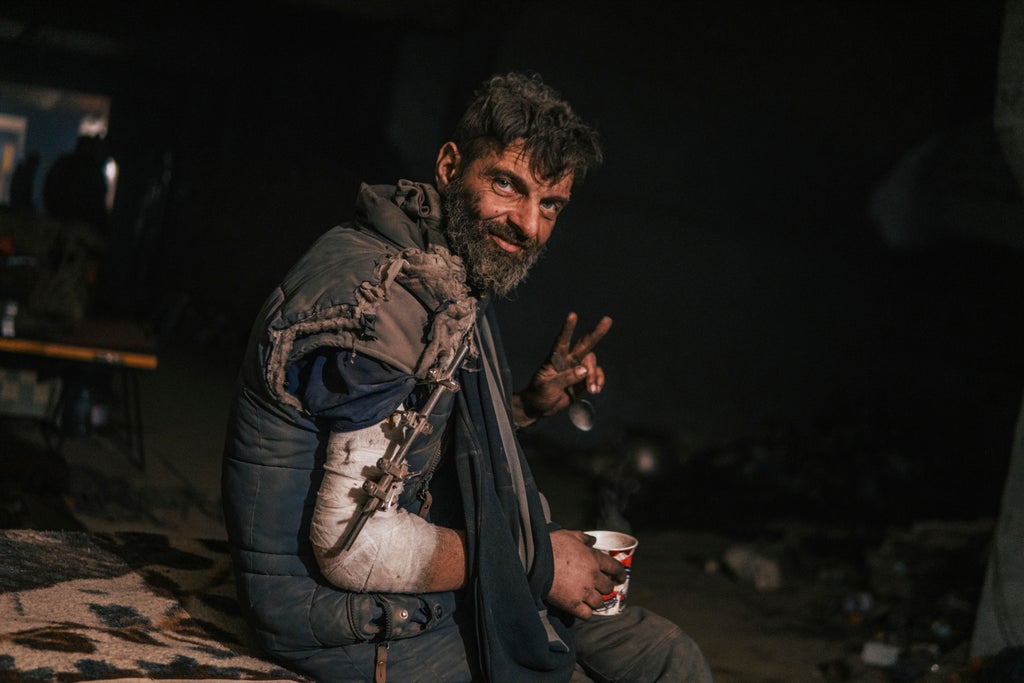
Fighters of the Azov Regiment, the Ukrainian unit holed up in the besieged Azovstal steel mill in the devastated port city of Mariupol, have released photos of their wounded comrades in arms who they say are in the plant, along with an appeal to the United Nations and Red Cross to arrange for their evacuation.
In a statement accompanying the photos posted on a Telegram channel titled “Azov — Mariupol” Tuesday, they said the wounded, who they noted were no longer combatants, were living in unsanitary conditions “with open wounds bandaged with non-sterile remnants of bandages, without the necessary medication and even food.”
The statement said that “the whole civilized world must see the conditions in which the wounded, crippled defenders of Mariupol are and act.”
“We demand the immediate evacuation of wounded servicemen to Ukrainian-controlled territories, where they will be assisted and provided with proper care,” the statement concluded, noting there were several hundred wounded fighters in the plant.
The series of 10 photos shows fighters with severe injuries, including two standing on crutches who have had their left legs amputated, one with his left arm amputated at the shoulder and another with his right arm amputated above the elbow, with the stump bandaged. Two others are shown being treated by medics, and another has an external fixation device, which is screwed into broken limbs to stabilize them, on his right arm.
It was not possible to independently verify where the photos were shot or the identities of those depicted.
The seaside steel mill is the only part of the strategic port city that has not been taken over by Russian forces. With a warren of tunnels and bunkers extending deep beneath the plant, hundreds of civilians had taken shelter there from the intense bombardment of their city. Ukrainian and Russian officials had said the last remaining women, children and the elderly were evacuated from the plant earlier this week, but confusion remained as to whether all civilians had been evacuated after two Ukrainian officials on Tuesday estimated that some remained.
The Azov Regiment has a controversial past. It derives from a group called the Azov Battalion, which formed in 2014 as one of many volunteer brigades in the fight against Russia-backed separatists in Ukraine’s east. It drew its initial fighters from far-right circles and elicited criticism for its tactics. Later in 2014 it splintered into two groups, with one folded into the National Guard as the Azov Regiment, and another becoming a far-right political movement.







